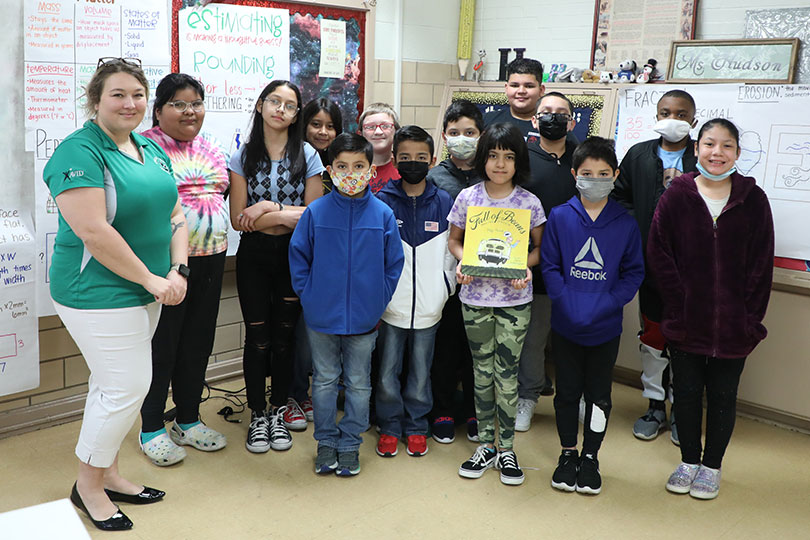By Julie Tomascik
Editor
Teachers across the state brought agriculture to life for their students through Texas Farm Bureau’s (TFB) Ag Literacy Week, which was held in conjunction with National Ag Week, on March 21-25.
“The goal of this program was to increase agricultural literacy among students across Texas. We wanted to provide a way for teachers to connect agriculture to topics and concepts they are teaching in their classrooms in a way that highlighted the importance of the crops and livestock that are raised throughout the state and beyond,” said Jordan Bartels, TFB associate director of Organization Division, Educational Outreach.
Over 1,100 public, private and homeschool teachers signed up to receive a free, accurate ag book to read during the week, as well as an educator’s guide that included several classroom activities.
The free book that was provided by TFB was Full of Beans: Henry Ford Grows a Car. The short book highlights how Henry Ford was determined to build his most inventive car—one completely made of soybeans. The book inspires readers to think innovatively and includes accurate, educational information about soybeans.
Teachers like Ann Hudson, a fourth-grade math and science teacher at Crestview Elementary in Waco ISD, used the free resources to introduce agriculture into the week’s lesson plans.
“The book was really informative about how soybeans are used to make plastic for cars and how they can be used to make other things like fabric and paint,” Hudson said. “The kids really enjoyed it. They thought it was interesting, and it brought agriculture in the classroom in a way that they can understand it.”
She used the educator’s guide to continue incorporating the book and its information in the classroom activities.
“We graphed the bushels per acre for a couple different decades in U.S. history, and they got to see the growth in the yield of soybeans over time,” Hudson said. “This ties back to our data and analysis unit, and it also gets them experience with finding real figure and applying them to math in real life. IT also ties into our science curriculum, talking about producers in the environment and how they interact with their own ecosystem.”
Agriculture can be incorporated into any subject, but especially science, technology, engineering and math (STEM).
“I like to bring agriculture into STEM,” Hudson said. “There are lots of different graphs and figures that you can make about yield and production and the life cycle of animals that really just brings everything full circle back into the classroom. I feel like integrating ag into STEM really brings it to life for them.”
TFB’s goal is to expand student knowledge about agriculture and help students grow into more informed consumers, while also providing resources that educators can use.
“I think it’s great that Farm Bureau is providing these resources and making these lessons available, because I had no idea that book existed. I am planning on incorporating it further into our lesson plans,” Hudson said.
Watch a video with Hudson sharing more about TFB’s Ag Literacy Week.
View the #ReadAgBooksTX on Facebook, Twitter and Instagram to see more teachers reading the book.
TFB also works year-round to increase agricultural literacy in Texas classrooms through a variety of in-classroom programs, lessons, resources, grants and teacher professional development. More information on those opportunities and resources is available at texasfarmbureau.org/aitc.

